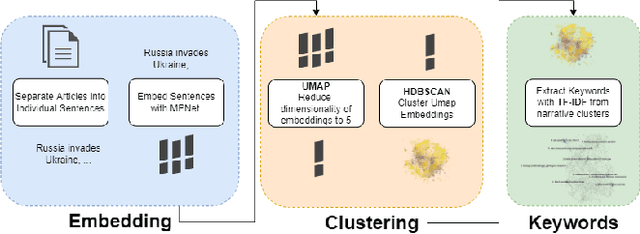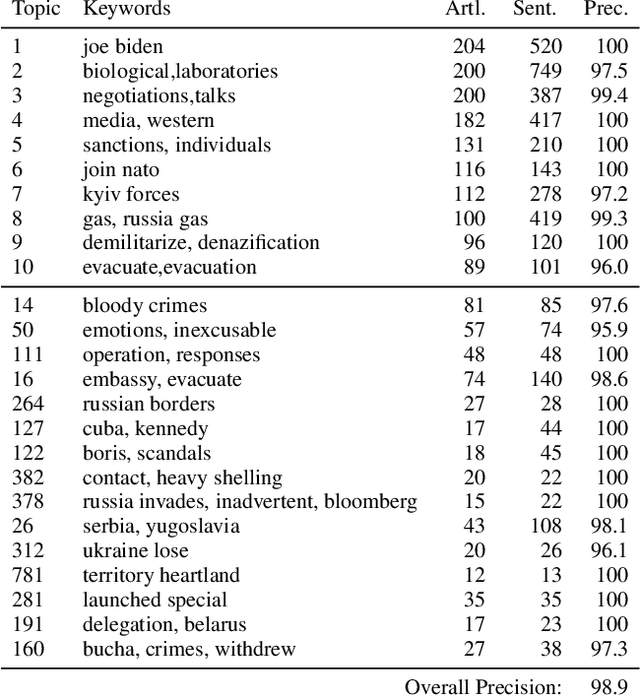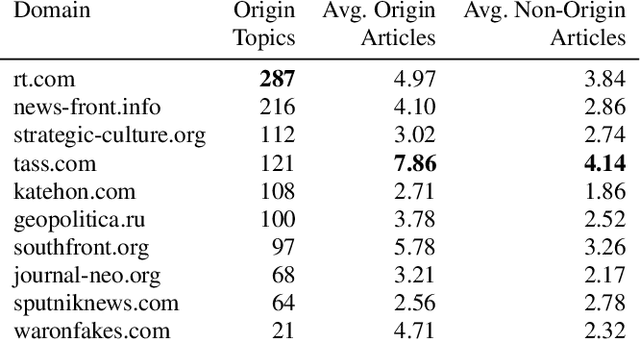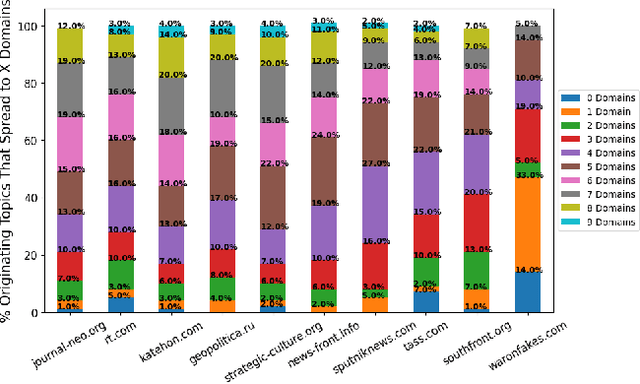Happenstance: Utilizing Semantic Search to Track Russian State Media Narratives about the Russo-Ukrainian War On Reddit
Paper and Code
May 28, 2022



In the buildup to and in the weeks following the Russian Federation's invasion of Ukraine, Russian disinformation outlets output torrents of misleading and outright false information. In this work, we study the coordinated information campaign to understand the most prominent disinformation narratives touted by the Russian government to English-speaking audiences. To do this, we first perform sentence-level topic analysis using the large-language model MPNet on articles published by nine different Russian disinformation websites and the new Russian "fact-checking" website waronfakes.com. We show that smaller websites like katehon.com were highly effective at producing topics that were later echoed by other disinformation sites. After analyzing the set of Russian information narratives, we analyze their correspondence with narratives and topics of discussion on the r/Russia and 10 other political subreddits. Using MPNet and a semantic search algorithm, we map these subreddits' comments to the set of topics extracted from our set of disinformation websites, finding that 39.6% of r/Russia comments corresponded to narratives from Russian disinformation websites, compared to 8.86% on r/politics.
 Add to Chrome
Add to Chrome Add to Firefox
Add to Firefox Add to Edge
Add to Edge